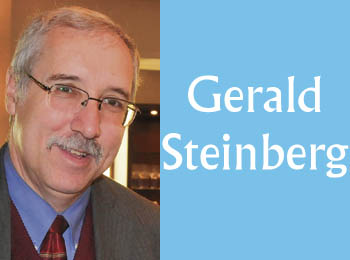While President Barack Obama and Republican challenger Mitt Romney trade insults and sound bites in the American election, the Israeli version is very different. Benjamin Netanyahu is likely to remain prime minster after Jan. 22 – although widely criticized, his policies most closely match the Israeli consensus, and there are no figures with the stature to seriously challenge him.
Therefore, the real battles are between the dozen or so political parties that are jockeying for power, and among the candidates within each party. They represent different social and political constituencies (Israel isn’t divided into regional districts or ridings), and each seeks to gain the allegiance of uncommitted voters.
In the process, issues such as Iran’s nuclear program, the regional turmoil (once optimistically labelled the “Arab Spring”) and preventing terror from Gaza and Sinai will get little discussion because there are few differences. Israeli voters, in general, understand the complexities (much better than many foreign observers) and give little credence to politicians with simple solutions to issues of war and peace.
Instead, the focus is on domestic issues – economics, burden sharing, exemptions from military service for the large haredi community, and corruption in the political system. The Labor party, with a new leader, Shelly Yachimovich, has brought in the leaders of last year’s mass demonstrations against rising prices and the shortage of affordable housing. A revival of the Labor party, which controlled the Israeli government until Begin’s victory in 1977, and then returned to lead the disastrous Oslo “peace process,” will mark a major shift.
In the Likud, Netanyahu will emphasize security and economic leadership and stability amid a world recession, in comparison to Yachimovich’s rhetoric.
Among younger politicians, the competition is intense, and Likud candidates will pull to the right. Many will highlight their Zionist credentials by demanding the legalization of unauthorized settlements and curbing European efforts to manipulate Israelis, in competition with Avigdor Lieberman’s Israel Beitenu (Israel is our Home) party. In 2009, Lieberman surprised pundits by emerging as the head of the third-largest party, expanding significantly beyond his Russian base.
Kadima, which was the largest party in 2009, gaining 29 out of 120 seats, may not survive. Tzipi Livni, the party leader until a few months ago, is viewed as a failure, while her replacement, former IDF chief Shaul Mofaz, is another ex-general lacking political common sense. And Ehud Olmert, who inherited the positions of prime minister and head of Kadima after then-prime minister Ariel Sharon’s stroke, remains a liability after the failed 2006 Lebanon war and corruption trials, including one conviction to date. Talk of Olmert’s political comeback is just that – talk.
Among religious voters – about 20 per cent of the Jewish population – the Shas (Sephardi Torah Guardians) party has the widest following and may expand with the return of former Interior Minister Arye Deri, 10 years after he completed a prison sentence for corruption. Many Shas voters dispute the justice of his conviction, and his popularity is likely to stem the switch to Likud.
Deri is also a pragmatic national figure who might be able to break the deadlock in the conflict over mass military service exemptions granted to yeshiva students. The High Court struck down the exemptions as discriminatory, and a compromise that would gradually lead to army service and the re-integration of the haredi sector into the broader Israeli economy would gain wide support from religious and secular voters.
Finally, there are a significant number of younger secular Israelis (and some not so young) who are alienated from the anachronistic parties and ideological divisions. Some may vote for new Labor, with the emphasis on economic reform, and others for the latest “centrist” party, headed by Yair Lapid, a charismatic actor/news presenter/columnist with vague positions on the major issues of the day.
With so many different dimensions to follow, the campaign promises to be interesting and will again demonstrate Israel’s thriving, if less than perfect, democracy. Among the many miracles in the restoration of Jewish sovereignty, this is another one that should not be taken for granted.
